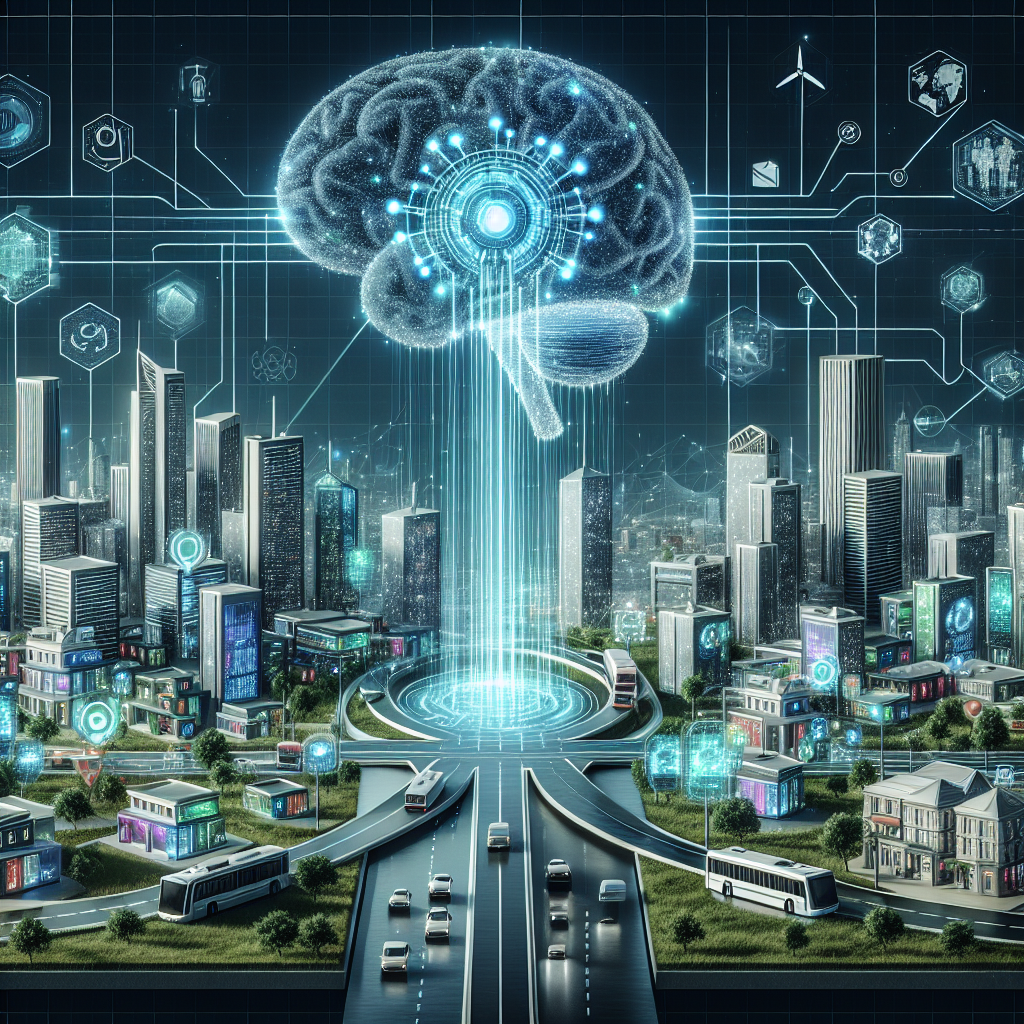The Role of AI Development in Smart Cities
In recent years, the concept of smart cities has gained significant traction as urban areas around the world look for innovative solutions to improve efficiency, sustainability, and quality of life for their residents. One of the key technologies driving the development of smart cities is artificial intelligence (AI). AI has the potential to revolutionize how cities operate and deliver services, from transportation and energy management to public safety and healthcare. In this article, we will explore the role of AI in smart cities and its impact on urban living.
What is a smart city?
A smart city is a city that uses technology and data-driven solutions to enhance the quality of life for its residents, improve efficiency and sustainability, and provide better services. Smart cities leverage a wide range of technologies, such as IoT (Internet of Things), big data analytics, and AI, to collect and analyze data in real-time and make informed decisions to optimize city operations.
AI in smart cities
AI is a key technology that enables smart cities to process and analyze massive amounts of data in real-time, identify patterns and trends, and make predictions to improve decision-making and optimize city operations. AI algorithms can help cities automate routine tasks, streamline processes, and improve the delivery of services to residents.
One of the main areas where AI is making a significant impact in smart cities is transportation. AI-powered systems can analyze traffic patterns, predict congestion, and optimize traffic flow to reduce travel times and decrease emissions. For example, AI algorithms can adjust traffic signal timings based on real-time traffic data, reroute vehicles to avoid congested areas, and optimize public transportation routes to improve efficiency.
AI is also being used in energy management to optimize the use of resources and reduce energy consumption. Smart grids equipped with AI algorithms can analyze energy usage patterns, predict demand, and adjust energy production and distribution to reduce costs and environmental impact. AI can also help cities monitor and manage energy consumption in buildings, streetlights, and other infrastructure to improve efficiency and sustainability.
In the area of public safety, AI-powered systems can analyze crime data, predict crime hotspots, and deploy resources more effectively to prevent crime and respond to emergencies. AI algorithms can also analyze video feeds from surveillance cameras to detect suspicious behavior or identify missing persons in real-time, improving the effectiveness of law enforcement agencies.
AI is also being used in healthcare to improve access to medical services and optimize patient care. AI-powered systems can analyze healthcare data to identify at-risk populations, predict healthcare needs, and recommend personalized treatment plans. AI algorithms can also assist healthcare providers in diagnosing diseases, monitoring patient health, and managing resources more effectively to improve outcomes and reduce costs.
Challenges and considerations
While AI has the potential to bring significant benefits to smart cities, there are also challenges and considerations that need to be addressed. One of the main concerns is around data privacy and security. As cities collect and analyze vast amounts of data, there is a risk of data breaches, unauthorized access, and misuse of personal information. It is essential for cities to implement robust data protection measures, encryption, and access controls to safeguard sensitive data and ensure privacy and security.
Another challenge is around the ethical use of AI in decision-making. AI algorithms can be biased or make incorrect predictions, leading to unintended consequences or discriminatory outcomes. It is crucial for cities to develop transparent and accountable AI systems, conduct regular audits, and provide oversight to ensure fair and ethical use of AI in smart city applications.
Furthermore, there is a need for cities to invest in the necessary infrastructure, skills, and resources to deploy AI effectively. Developing AI-powered systems requires expertise in data science, machine learning, and software development, as well as access to high-quality data and computational resources. Cities need to build partnerships with technology companies, research institutions, and other stakeholders to develop and implement AI solutions that meet their specific needs and objectives.
FAQs
Q: How is AI being used in transportation in smart cities?
A: AI is being used in transportation to analyze traffic patterns, predict congestion, optimize traffic flow, and reduce travel times. AI algorithms can adjust traffic signal timings, reroute vehicles, and optimize public transportation routes to improve efficiency and reduce emissions.
Q: What are the benefits of using AI in energy management in smart cities?
A: AI in energy management can help cities optimize energy production and distribution, reduce costs, and improve sustainability. AI algorithms can analyze energy usage patterns, predict demand, and adjust resources to minimize environmental impact.
Q: How is AI improving public safety in smart cities?
A: AI is being used in public safety to analyze crime data, predict crime hotspots, and deploy resources more effectively. AI algorithms can also analyze video feeds from surveillance cameras to detect suspicious behavior and identify missing persons in real-time.
Q: How is AI being used in healthcare in smart cities?
A: AI in healthcare is being used to analyze healthcare data, identify at-risk populations, predict healthcare needs, and recommend personalized treatment plans. AI algorithms can assist healthcare providers in diagnosing diseases, monitoring patient health, and managing resources more effectively to improve outcomes and reduce costs.
In conclusion, AI development plays a crucial role in the advancement of smart cities by enabling cities to collect and analyze data, make informed decisions, and optimize city operations. AI-powered systems have the potential to revolutionize transportation, energy management, public safety, and healthcare, leading to more efficient, sustainable, and livable urban environments. However, it is essential for cities to address challenges around data privacy, ethical use of AI, and investment in infrastructure and skills to deploy AI effectively in smart city applications. By leveraging AI technology responsibly and ethically, cities can unlock the full potential of smart cities and improve the quality of life for their residents.

